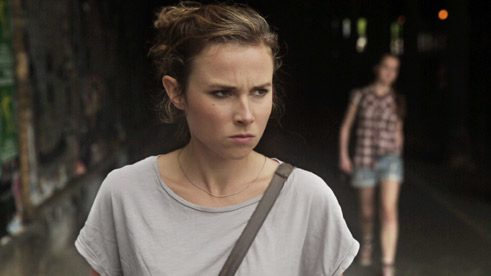Perspectives German Cinema
Exciting protagonists

The Perspektive showcases non-mainstream young German cinema for the fifteenth time.
This year, the Perspektive Deutsches Kino section will be celebrating its fifteenth anniversary. This is the section where one rarely sees the very best films, but does regularly get to see the German film that one ends up liking most. What is showcased here is fresh and at times exciting cinema by young talented directors without commercial prospects. There are not really any exclusion criteria: university films with and without funding, shorts and debut films are all possible, while the second or third film of a promising director is equally welcome. And of course, it is by no means the case that all the contributors are of German origin.
Young Protagonists going it alone
In summary, however, it can be said that young people going it alone are taking centre stage this year. The opening film, Meteorstraße (Meteor Street) by Aline Fischer, is about a young Palestinian war refugee who has already been living and working in Germany for ten years yet has still failed to gain a foothold. In Maximilian Feldmann’s Valentina – one of many films featuring a name in the title – a bright Roma girl takes us on a tour of her poverty-stricken life in Skopje with a great deal of wit. By contrast, Toro by Martin Hawie and Jules Herrmann‘s Liebmann are rather bleaker films with extremely taciturn male protagonists. Then there are a number of interesting documentaries, the most spectacular of which is without doubt Kamilla Pfeffer’s Wer ist Oda Jaune? (Who is Oda Jaune?) about the German-Bulgarian painter.PROCLIVITY FOR “GERMAN MUMBLECORE”
Recently, section director Linda Söffker has repeatedly confessed her proclivity for German Mumblecore: little gems of films shot from the hip with oodles of heart and soul and improvisation. Unfortunately, genre-defining works by Axel Ranisch (Ich fühl mich Disco) or Jakob Lass (Love Steaks) were never ready in time for the festival. This year the gap is filled by Lotte by Julius Schultheiß. Lotte is a nurse lurching somewhat aimlessly through life, allowing nothing but alcohol and cigarettes close to her, until she meets her daughter. The actress Karin Hanczewski, who plays the starring role, could well become the audience’s favourite this year – especially since Lotte is a Berlin film which does a good job of capturing the city’s erratic and heady attitude to life (camera: Martin Neumeyer).Naturally, it is not unusual for young filmmakers to be especially moved by lost young people trying to make it on their own. Yet Sebastian Hilger expressly views his film Wir sind die Flut (We are the tide) as a portrait of his generation: the mystery surrounding vanished children and the search – obstructed by adults – for a solution to the puzzle is a science fiction film, though not necessarily one that is set in the future.